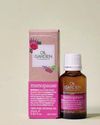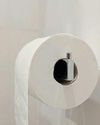In every moment of every day of your life, your thoughts are determining how you feel and behave. Given they have such enormous power over your life, you’d better make sure your thoughts are facts because, more often then you realise, they are not.

What essentially makes you depressed or anxious or angry? Most would say it’s what happens to you that determines how you feel. You were retrenched from work today and are devastated. You were abused by a friend and feel angry and sad. You were ignored by your partner and feel rejected.
Many people, however, including psychologists, now recognise life events play only a small role in how you feel and behave. The real culprits are your thoughts. It’s not what happens to you but how you interpret and think about what happens to you that matters.
Many of our interpretations of events are distorted and this is where cognitive therapy comes in. Cognitive therapy is not about positive thinking. It’s about rational thinking. It’s about learning to identify our interpretations of events, otherwise known as our self-talk, and then learning to challenge the self-talk by examining the cold hard evidence. In effect, we are using our rational brain as a weapon to fight the distortions we are prone to in our everyday thinking.
The idea that our thoughts influence our feelings and behaviour is not a new one. The Greek Stoic philosopher Epictitus, born 55 CE, once famously said, “Men are disturbed not by things but by the view which they take of them.” Twenty centuries later, American psychiatrist Aaron Beck founded the most highly researched and applied therapy of recent times based on this idea. Beck called it cognitive behavioural therapy (CBT), cognitive being another term relating to thoughts.
This story is from the Issue#174 edition of WellBeing.
Start your 7-day Magzter GOLD free trial to access thousands of curated premium stories, and 9,000+ magazines and newspapers.
Already a subscriber ? Sign In
This story is from the Issue#174 edition of WellBeing.
Start your 7-day Magzter GOLD free trial to access thousands of curated premium stories, and 9,000+ magazines and newspapers.
Already a subscriber? Sign In

YOGA FOR IMPERFECTION
Life is messy and we all make mistakes, but by embracing imperfection, we can begin to accept all parts of ourselves.

Creating the foundations of ritualist self-care
As a busy mum of a three-year-old and expecting another baby, finding time for self-care often feels like a luxury.

Are you doom spending?
If \"doom spending\" has become your go-to for coping with stress, you could be making withdrawals from not just your bank account, but your health too.

THE POWER OF music
Most of us enjoy music. But science shows music is central to being human and its effect on us is far more astonishing and impactful than we realise. Music is fundamental to life.

SYNTHETIC FOODS
Synthetic, or genetically modified, fake meats and the like attempt to mimic real meat in both looks, taste and texture. But how much do we really know about the production process and how do they affect the environment and our bodies?

Embracing the power of nature
Menopause is more than just a biological change, it represents a significant life stage that can present numerous challenges - from hot flushes and mood swings to fatigue and sleepless nights.

Jan Fran
From a young age, Jan Fran's deep curiosity and keen interest in social issues sparked her journey into the world of journalism. As an accomplished journalist, media commentator and broadcaster, Fran's passion for storytelling has always been driven by a desire to explore, question and shed light on the world around her.

Helping teen girls thrive
Statistics reveal that many more teen girls are struggling with mental health issues. What's going on with them? More importantly, what can we do to help them flourish?

Your ageing eyes
Your eyes work hard for you every waking minute. It is no surprise that how your eyes age will be determined by how you protect them. Eating the right foods can go along way towards ensuring that your eyes stay healthy for a lifetime.

The bottom line
During the Couid pandemic, we were shocked to see people fighting in supermarkets over toilet paper and to see empty shelves that had once held roll after roll. The reasons behind the run for toilet paper during this time reflect the unique place that it holds in our psyche and are deeply rooted in our history.